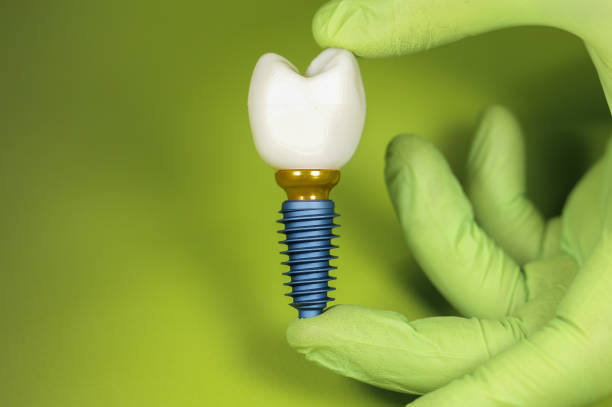The Intersection of Neurology and Dentistry: How TMJ Disorders Affect the Central Nervous System

TMJ disorders are more than just a dental problem—they can actually have a significant impact on your nervous system. If you’ve been dealing with jaw pain, headaches, or clicking sounds when you open your mouth, the issue might be affecting more than just your teeth.
The temporomandibular joint (TMJ) connects your jaw to your skull, and when it’s not functioning properly, it can lead to discomfort not only in your mouth but throughout your entire nervous system. This connection between neurology and dentistry is crucial to understand, as the way your jaw moves can influence your brain and overall nervous health.
How do TMJ disorders impact the central nervous system?
TMJ (temporomandibular joint) disorders can significantly impact the central nervous system (CNS) due to the complex relationship between the jaw, facial muscles, and the nerves that control them.
The TMJ is responsible for jaw movement, and when it is misaligned or dysfunctional, it can create abnormal stress on the surrounding muscles, ligaments, and nerves. This dysfunction can lead to pain and inflammation, which may radiate to the head, neck, and shoulders, often causing headaches, migraines, and even ear pain.
TMJ issues generally involve the trigeminal nerve, which governs facial and jaw muscle feeling. This nerve regulates the body’s stress response; hence, TMJ dysfunction can influence pain perception and emotional management. TMJ disorders can cause pain sensitivity, anxiety, irritability, and sleep problems.
Over time, TMJ pain can create a feedback loop that disrupts the nervous system’s ability to process pain and manage stress, worsening pain and harming mental and physical health.
What neurological symptoms can TMJ disorders cause?
TMJ issues can produce neurological symptoms due to the jaw, face muscles, and nerves intimate relationship. These symptoms result from TMJ dysfunction or misalignment, which can influence the CNS. Some common neurological symptoms of TMJ disorders:
- Headaches and Migraines: TMJ disorders often trigger tension headaches and migraines due to muscle strain and nerve irritation around the jaw and temples. The trigeminal nerve, which is involved in facial sensation and pain processing, can become overstimulated, leading to frequent headaches.
- Facial Pain or Numbness: The trigeminal nerve can also cause sharp or dull pain in the face, especially around the jaw, cheeks, or temples. In some cases, the nerve may become compressed, leading to a sensation of numbness or tingling in the face.
- Ear Pain and Ringing: TMJ dysfunction can affect the nerves around the ear, leading to earaches or a sensation of fullness. It can also cause tinnitus (ringing in the ears), as the TMJ is closely connected to the ear canal.
- Neck and Shoulder Pain: The misalignment of the TMJ can lead to muscle tension in the neck and shoulders, which may radiate to the head, causing stiffness or pain. This tension can also trigger neurological discomfort, including numbness or tingling in the arms or upper body.
- Dizziness and Vertigo: Some people with TMJ disorders report feeling lightheaded or experiencing a sensation of vertigo (spinning) due to the jaw joint’s close proximity to the inner ear, which is involved in balance.
- Difficulty with Jaw Movements: Dysfunction in the TMJ can lead to a limited range of motion, causing difficulty with jaw movements. This can interfere with speaking, chewing, and swallowing, potentially affecting normal nerve function in the mouth and throat.
TMJ disorders can significantly affect neurological function, leading to discomfort and disrupting everyday activities. Early diagnosis and treatment are essential to alleviate these symptoms and prevent further complications.
Why is there a connection between TMJ disorders and nerve pain?
The connection between TMJ disorders and nerve pain stems from the complex relationship between the temporomandibular joint (TMJ), the nervous system, and the muscles involved in jaw movement. Several factors contribute to this link:
- Trigeminal Nerve Involvement: TMJ issues depend on the trigeminal nerve, which governs facial, jaw, and teeth sensation. Jaw muscles are directly associated with the trigeminal nerve, so a misaligned or dysfunctional TMJ might irritate or compress it. Jaw, cheek, and head nerve pain can be severe, stabbing, or mild.
- Muscle Tension and Inflammation: Jaw, neck, and shoulder discomfort and irritation are prevalent with TMJ. Muscle stress can affect these nerves, causing referred pain. Jaw clenching and grinding from TMJ issues can induce muscle spasms that irritate the face, neck, and upper body nerves.
- Nerve Compression: A misaligned TMJ can lead to the compression or pinching of nearby nerves. This pressure can disrupt nerve signals, causing numbness, tingling, and shooting pains in the face, jaw, neck, and arms.
- Nerve Sensitivity: TMJ dysfunction and pain can increase nerve sensitivity over time. Chronic inflammation and irritation of the trigeminal nerve and jaw muscles can increase pain perception, making even mild TMJ pressure painful.
The proximity of the TMJ to vital nerves, the mechanical strain on muscles and joints, and the intricate way the body interprets pain signals link TMJ disorders to nerve pain. Restoring TMJ alignment and lowering nerve pressure can reduce nerve pain.
How does TMJ dysfunction affect brain function and overall health?
TMJ dysfunction can affect brain function and overall health in various ways due to the close connection between the jaw, nervous system, and brain. Here’s how it impacts health:
- Headaches and Migraines: TMJ dysfunction can cause tension headaches or migraines by irritating the trigeminal nerve, which is responsible for facial sensation. Chronic pain signals can interfere with brain function, leading to frequent or severe headaches.
- Chronic Stress and Anxiety: Ongoing pain from TMJ issues can trigger stress responses in the body. This can increase cortisol levels, affecting mood, sleep, and mental clarity.
- Sleep Disruptions: Jaw pain, teeth grinding, and discomfort from TMJ dysfunction can cause sleep disturbances. These can lead to poor sleep quality and fatigue and negatively impact brain function, memory, and overall well-being.
- Cognitive Function: Chronic pain and sleep deprivation can impair concentration, focus, and memory, affecting cognitive abilities.
- Neck and Shoulder Tension: TMJ dysfunction often causes muscle tension in the neck and shoulders, leading to discomfort, stiffness, and reduced mobility, which can affect physical health and posture.
Treating TMJ dysfunction can help reduce its effects on brain function and improve overall quality of life.
Understand How TMJ Disorders Impact Your Nervous System Today!
Illume Dental of McKinney specializes in TMJ-central nervous system relationships. TMJ dysfunction can affect your neural system, causing headaches, facial pain, jaw pain, and neck tightness.
The complex interaction between the jaw, facial muscles, and nerves causes these difficulties. Any of these symptoms may indicate TMJ. Schedule an assessment today to see how we can improve your dental and overall health!


